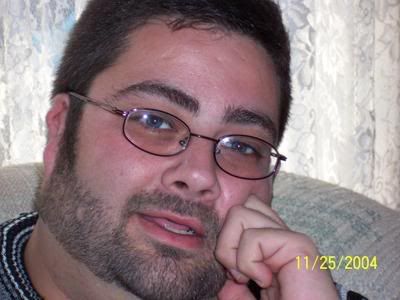Tell me about your job. How did you get into this line of work?
I am a strategy consultant who provides finance, strategy and marketing advisory services to clients in the assistive technology industry, including nonprofits that serve people with disabilities. A finance industry veteran, I worked at American Express, Thomson Reuters, and IBM, and was the second profoundly deaf student to receive an MBA from the Wharton School of the University of Pennsylvania. In addition to my work, I write about disability issues and business at michaeljanger.com.
I was born profoundly deaf, and not having the sense of hearing in a world full of hearing people presented me with challenges on an almost daily basis. Socially, academically and professionally, it was very difficult to communicate on a functionally equivalent level with my peers. The saving grace for me were innovations in technology that have enabled me to prosper in my career and my personal life. So, it is a passion for me to work with companies to better market products that make a difference for people with disabilities.
With my finance and strategy experience in Fortune 500 companies, it was a natural progression to a line of work where I could offer my skills in a market I know well, as a person with a disability.
What is the best part of your job?
I enjoy working with clients to solve their business problems. It feels good to know I am helping them perform better, and more importantly, provide consumers with disabilities with better choices when evaluating products that enable them to function in a non-disabled world.
What are some of the challenges of your job?
This is my first entrepreneurial role. It was not by choice that I left American Express in 2009 — the Lehman collapse and credit crunch resulted in major layoffs at American Express. In a difficult job market in finance, I decided to lay the groundwork for a consulting career where I could provide my substantial finance and strategy experience to companies in a market that I know intimately. But it is a lot of work. You have to be disciplined day in and day out, and network as much as possible to build your business and get to know the major players in the amazingly diverse world of people with disabilities.
What was it like growing up deaf?
An important starting point — especially for those who are hearing — is that as someone who was born profoundly deaf, I did not lose anything. I have no memory or knowledge of what it is like to be fully hearing — to speak easily on the phone, listen to a podcast, or appreciate the finer points of music. The experience I have every day is of someone with a limited sense of hearing growing up in a world dominated by people who can hear perfectly well.
This meant adapting to situations where the odds are always stacked against you. In high school, I did not have a real social life in a day and age when there were no cell phones, e-mail, or Internet. My hearing classmates called each other by landline phone, and I could not use the phone on my own. Sometimes I had to ask my parents to make the calls for me — which was very awkward to do in the image-conscious world of adolescence. It was not until college, where people see each other constantly in dormitory halls and campus greens, that my social life flourished.
My childhood experiences have given me a strong desire to be connected to everything, to have access to as much information as possible. Which might be too much of a good thing today, in the age of information overload. But it has come in handy for me in my work, as I tend to be pretty good at collecting and analyzing data, and doing exhaustive research on the various business issues I face in my work.
What advice would you give a deaf/HH person who is looking for a career like yours?
As a finance industry veteran, it is important to build up substantial credentials in your field of expertise before venturing into a business of your own. Unlike marketing or creative writing, finance tends to be a pretty conservative industry where intelligence, trust, and solid academic credentials are key success factors. To shift from finance into a business of your own requires a strong network of people who can help you make your business work, and a vastly different approach to work that relies less on analyzing numbers and more on creative, team-oriented problem-solving.
In whatever you do, it is important to follow your passion. A friend of mine, who is also deaf, put it very succinctly: “The best job is one where I can work for free.” And when it comes with a paycheck, it’s even better.

 Bryen M. Yunashko is known as Yuko to his friends. For the last nine years, Bryen has been self-employed as a consultant in the IT field, specializing in open source software, especially Linux. “I focus on server set ups, file systems, email management, and desktop management,” Bryen explained. “At any given time, day or night, I could be discussing a project with developers in China, Europe, India, the U.S., anywhere.”
Bryen M. Yunashko is known as Yuko to his friends. For the last nine years, Bryen has been self-employed as a consultant in the IT field, specializing in open source software, especially Linux. “I focus on server set ups, file systems, email management, and desktop management,” Bryen explained. “At any given time, day or night, I could be discussing a project with developers in China, Europe, India, the U.S., anywhere.”